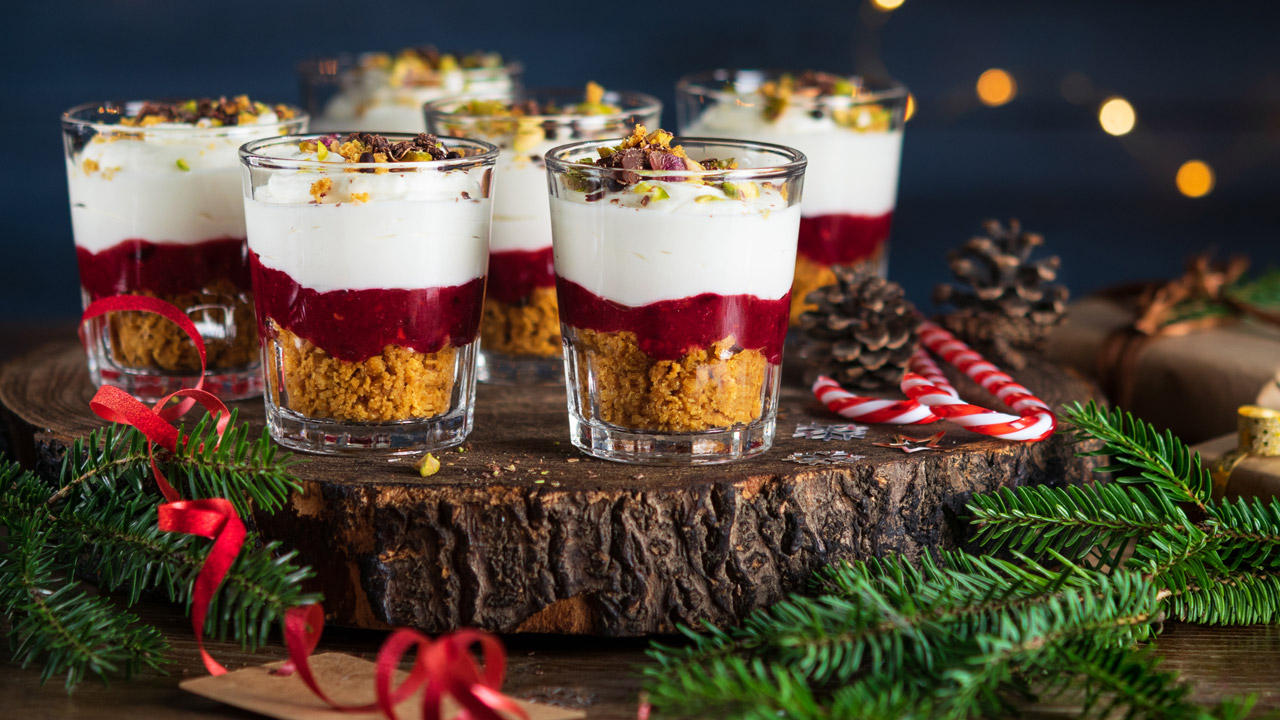A Guide to Navigating the Holiday Dessert Table

Holiday desserts are nutritiously special, delicious, and often occur during one time of the year only. This notion often results in our human tendency to overdo it at the dessert table, especially if these desserts are usually considered off-limits in our diet.
This mindset is going to be the first thing you need to work on if you’re struggling with your relationship with food as a whole, but even more so during the holidays since holiday treats can be extremely daunting.
#1 REMOVE THE “GOOD” AND “BAD” FOOD LABELS
The idea that some food is inherently good or bad stems from a diet culture and diet trends that are vilifying entire food groups while putting others on a very high pedestal.
There are many inherent issues with this sort of thinking. And what you should know is that you’re not inherently a good or bad person because of what you decide to eat during the holidays.
Focus on a concept known as food neutrality – put all foods from cookies to kale on a neutral playing field. As long as you’re getting in your macros for the day and not exceeding it, you’re golden.
#2 GIVE YOURSELF PERMISSION TO EAT DESSERTS
It’s really vital to know that you have absolute permission to enjoy the treats of your choice during any time of the year. You might be thinking that this will lead you to just eat desserts all the time. The thing is, when you take away the deprivation of a certain food, such as the labels “bad”, you won’t want dessert for every meal, every day.
The body will naturally crave variety so we just try to control that as much as we can. It’s much easier to have a treat or two at the holiday dessert table and simply stop when you feel satisfied just because you know you can have another one tomorrow.
#3 DO NOT SKIP MEALS
Another behavior you can often see with people trying to get in shape is that they’re “saving up” for holiday meals or dessert by skipping other meals all day until the event. But this will only end up backfiring because by skipping other meals, you’ll be much more likely to overeat later, and it will be much harder for you to make rational food choices.
It doesn’t matter what dessert we’re talking about, you should always try to eat regular meals and snacks throughout the day. You have to include good protein sources such as fish, chicken, eggs, tofu, and other, as well as colorful fruit and veggie options, nuts, seeds, and other foods that keep you full so you can feel comfortably hungry by the time you sit at the dinner table.
#4 MANAGE STRESS
It can’t go unsaid that the holiday season tends to be a rather stressful time for all of us. And as such, this is usually a time when self-care practices should be considered a priority. If emotional eating is one of your natural ways to cope, it can be easy to leave the dessert table feeling very uncomfortable if you haven’t managed your stress throughout the day. Make sure you’re always meditating, going for walks, connecting with friends, journaling, limiting screen time, and doing whatever you need to help you relax.
THE BOTTOM LINE IS…
Eating dessert every day is absolutely OK, and it’s possible to do it on a healthy, even plant-focused diet. Some days dessert can look like a few squares of dark chocolate, other days, a cupcake or cone of ice cream, and other days nothing because you’re just not feeling it.
That’s why the key here is to cultivate a positive relationship with food and be able to recognize just what you want or don’t want… and then permit yourself to do exactly that. This can make the holiday dessert table much easier to navigate without worry.
And if you’re struggling, the first step is always to take the dietary restrictions away before approaching the holidays. Just work on having a better relationship with food all-year-round and don’t be scared of your food choices.





